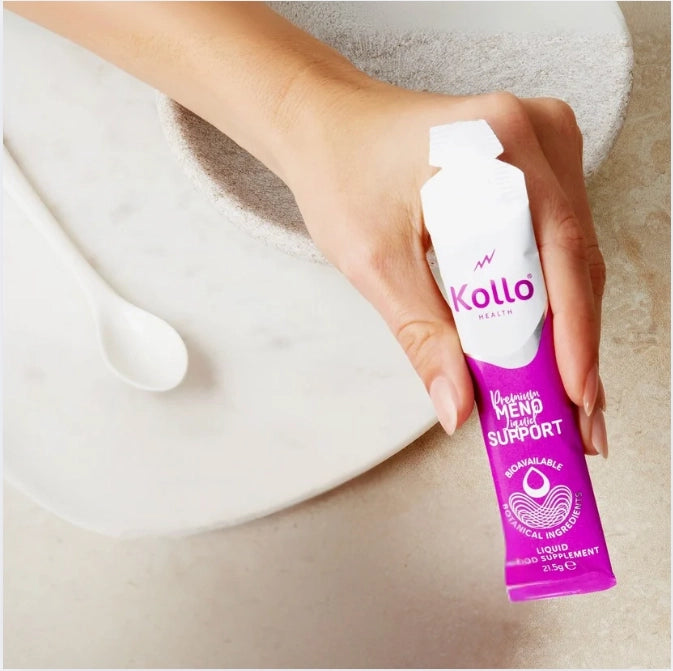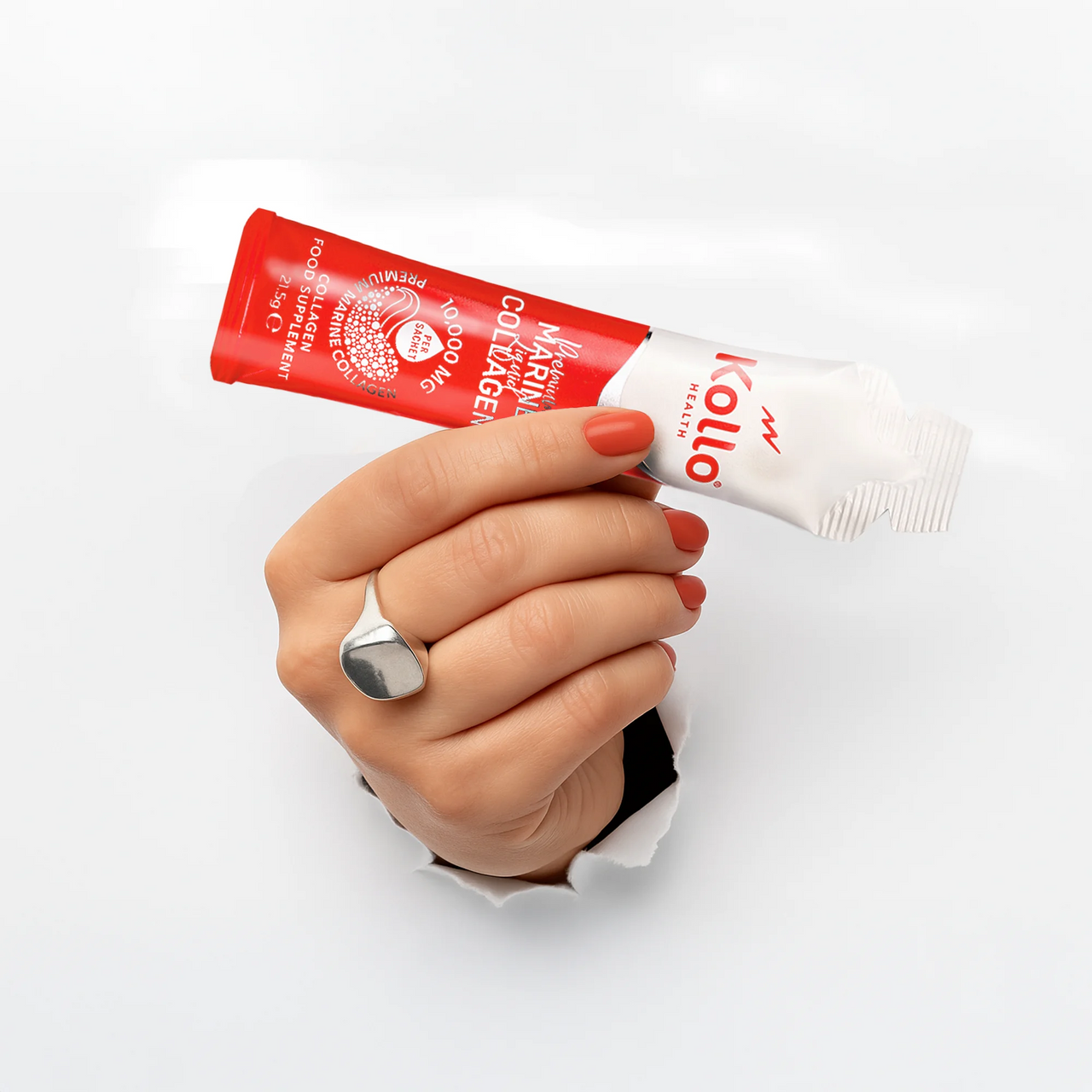It’s late at night, and you're both struggling to sleep. Your partner is restless, tossing and turning. You sense her discomfort as she struggles with the symptoms of menopause.
This scene has become all too familiar. Menopause brings many other symptoms that can disrupt life. Understanding what your partner is going through will help you provide the support she needs during this challenging time. With your help, your partner will navigate this phase with patience, understanding, and communication.
Menopause Tips for Husbands and Partners
Supporting your partner through menopause is crucial for maintaining a solid relationship. It’s essential to be proactive and empathetic. Simple actions will make a significant difference. These menopause tips will help you be supportive during this transition and create a stronger bond in your relationship.
Be Patient
Patience is critical when your partner is experiencing menopause. Hormonal changes cause mood swings, irritability, and fatigue. Recognise that these changes are not directed towards you but a result of her body adjusting.
Providing a stable environment that helps your partner feel supported is crucial. Patience goes a long way in reducing stress and fostering understanding, and you’ll also be closer.
Listen to Her Menopause Experience
Listening is one of the most valuable ways to support your partner during menopause. Let her share her feelings and experiences without judgement. Everyone’s journey through menopause is unique. Understanding the specific struggles can help you provide better support. Listening shows that you care and are willing to be there for her, no matter what she's going through.
Ask Her What She Needs
Sometimes, the best way to support your partner is to ask what she needs. Respect her needs and show you're being attentive and considerate. Give her a break from household chores, a shoulder to lean on, or some alone time. Open communication will prevent misunderstandings and help you both navigate menopause.
Encouragement
Encouragement can be very uplifting during menopause. Remind your partner of her strengths and accomplishments. Encourage her to engage in activities she enjoys.
Positive reinforcement helps boost self-esteem and provides a much-needed emotional lift. Your encouragement affects how your wife copes with these uncomfortable symptoms.
Menopause is a challenging time. But with understanding and support, it doesn’t have to be overwhelming. These tips will help her feel more comfortable and valued during this transition.
Educate Yourself on the Physical and Emotional Symptoms

Your partner needs you to support her through this time, and to do this, a good place to start is to educate yourself on her experiences. This knowledge will enable you to empathise and offer appropriate help. Being informed is a powerful tool. Your partner will appreciate that you took the time to educate yourself. She'll feel less isolated and more understood.
Physical Menopause Symptoms
Menopause brings various physical issues that impact daily life. Understanding and managing these challenges will make a big difference.
- Irregular periods: Irregular periods are often one of the first signs of menopause. Periods become unpredictable, causing inconvenience and discomfort.
- Vaginal dryness: Hormonal changes lead to dryness, making sex uncomfortable. Using lubricants will reduce discomfort during intercourse. Regular moisturisers designed for this also provide relief.
- Hot flashes, chills, night sweats: Sudden feelings of heat followed by chills can be distressing. These episodes may occur anytime, disrupting daily activities and leading to excessive sweating, which makes sleeping difficult.
Recognising and managing these issues may improve your partner’s quality of life. Simple lifestyle changes could make this transition smoother for both of you.
Emotional Menopause Symptoms
The emotional side of menopause is as challenging as the physical ones. These symptoms may affect daily interactions and well-being, making support crucial.
- Mood changes and depression: Hormonal fluctuations may lead to mood swings and depression. It’s crucial to provide emotional support and seek professional help if needed.
- Anger and irritability: Increased irritability is common. Patience and understanding are critical to managing this symptom.
- Forgetfulness: Memory lapses and difficulty concentrating are frustrating. Helping with reminders and being supportive may ease this burden.
- Loss of self-esteem and confidence: Menopause affects how your partner sees herself. Encouraging positive self-talk and engaging in activities that boost confidence will be beneficial to both of you.
- Brain fog: Difficulty in thinking is another common symptom. Understanding and assisting with mental tasks may help your partner feel more capable.
Supporting your partner through these changes may strengthen your relationship. Your empathy and patience will be invaluable as she navigates these changes. Small acts of kindness and consistent support can foster a deeper connection.
Understanding this allows you to provide the right kind of support. Being there for your partner through this time can make a world of difference. Your care could transform this challenging period into a time of mutual growth.
Support Healthy Lifestyle Choices

Maintaining a healthy lifestyle can ease many menopausal issues while improving her health. These changes foster a sense of control and enhance the quality of life.
- Menopause and Collagen Supplements: Collagen supplements may help with many signs of ageing. Learning how collagen can help you through menopause is important. These supplements are helpful for hair, skin, and nails and specific menopause-related concerns. Add a quality liquid menopause supplement, and you have taken a step towards a new normalcy.
- Hormone Replacement Therapy (HRT): HRT helps balance hormone levels and relieve symptoms. It’s especially beneficial for managing hot flashes and mood swings. Consult a healthcare provider to see if it’s a good option for your partner. HRT also improves sleep quality and reduces the risk of osteoporosis.
- Eating Healthy: Eating healthy during menopause is essential. A balanced diet of fruits, vegetables, and lean proteins supports health. Incorporating whole grains and healthy fats further boosts energy levels. Reducing sugar and processed foods is also critical to everyone's health.
- Drink Plenty of Water: Staying hydrated will help manage hot flashes and skin dryness. Adequate hydration also supports body functions and energy levels. Drinking enough water also aids digestion and helps maintain a healthy weight.
- Exercise: Add in a daily exercise routine. Regular physical activity will improve mood, boost energy, and help maintain healthy weight. Activities like yoga, swimming, or walking can be particularly beneficial. Strength training can also support bone health. Additionally, exercise can improve cardiovascular health and reduce stress levels.
These healthy lifestyle choices can improve your partner’s quality of life. Encourage and take part in these activities to show your support. Your involvement can make these changes more enjoyable and sustainable.
Adjust Daily Routines and Environment

Adjusting daily routines and the home environment can make menopause more manageable. Creating a comfortable and supportive space can help your partner cope. Consider decluttering common areas to reduce stress and create a more relaxing atmosphere.
Establishing a consistent daily routine can provide stability and a sense of normalcy. Incorporating relaxing activities, such as reading or yoga, can create a peaceful environment. Here are a few minor changes you can make to help your partner during this time.
Dealing With Night Sweats and Hot Flashes
Night sweats and hot flashes are common and disruptive symptoms of menopause. To help your partner, ensure the bedroom is cool and well-ventilated. Lightweight bedding and breathable nightwear can also make a significant difference in comfort. Keeping a fan or a cooling device nearby can further aid in managing these symptoms.
Sex and Vaginal Dryness
Menopause often leads to dryness, which can make sex uncomfortable. This change in women's bodies can result in a diminished sex drive. Having healthy sexual intimacy will bring you closer. Using lubricants can help ease this issue and make intercourse more comfortable.
Open communication about sexual needs and concerns is crucial for maintaining intimacy. Discussing libido and exploring different forms of intimacy can also enhance your connection. Being patient and understanding during this time will help strengthen your relationship.
Lowering Depression or Anxiety
Many women experience heightened depression and anxiety during menopause. This symptom is due to changing hormones that trigger anxiety. Encouraging stress reduction activities, such as meditation, exercise, or hobbies, can help. Professional counselling may also be beneficial if these negative emotions are severe. Building a strong support system with friends and family can also provide relief.
Quit Smoking
Smoking can exacerbate menopause symptoms as well as her health. Support your partner by finding resources and creating a smoke-free environment. The benefits of quitting smoking extend beyond menopause, improving health as well. If you smoke, quitting together can provide mutual support and increase success. It's a positive change that can strengthen your bond and health.
Supporting your partner through menopause involves understanding, patience, and active participation. Minor changes and thoughtful gestures can make this transition smoother. Showing empathy and addressing her needs will help you both navigate this phase.
Supporting Your Partner with Menopause Transition
By understanding menopause, you can provide the support your partner needs. Encourage healthy lifestyle choices, maintain open communication, and offer patience and empathy. Your involvement can make a big difference. Helping your partner navigate this challenging time can be easier with these tips.
Shop at Kollo Health today for more details about our Liquid Meno Supplement. Support your partner's health and well-being with our high-quality products designed to ease the symptoms of menopause.







